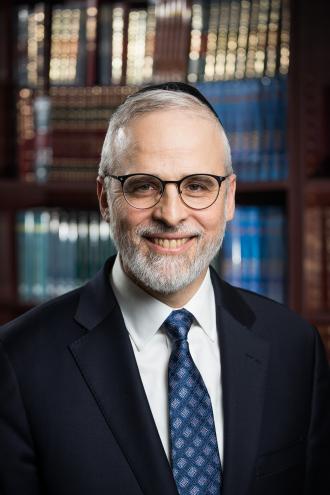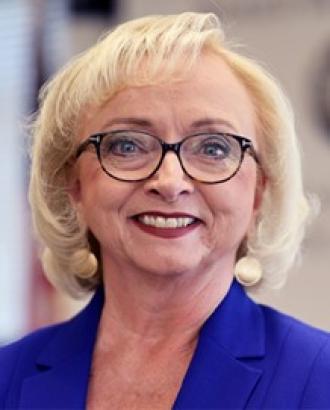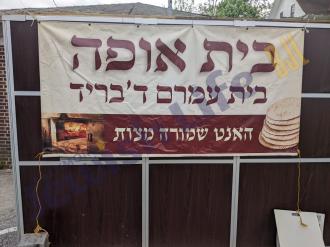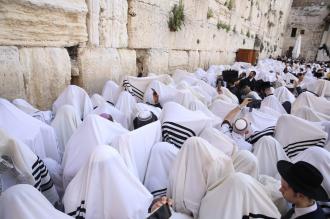After Pharaoh’s first attempt to crush the Jewish nation by imposing overwhelming physical burdens fails, as he observes the more he afflicts them the more they increase, he implements plan B.
The ‘king of Egypt’ confronts the Hebrew midwives, Shifra and Puah, instructing them to kill the Jewish sons on the birthstool. The Torah testifies that these midwives ‘feared G-d’ and refused to submit to the ‘king of Egypt’s’ directive. Not only do they allow the infants to survive but as the Torah attests how ‘they caused the boys to live’ by providing food and water as well. The ‘king of Egypt’ summons them once again questioning their defiance of his edict. The Torah describes how these heroes respond to ‘Pharaoh’, no longer described as the ‘king of Egypt’, telling him that the Jewish women are quite adept at delivering their own babies and it is virtually impossible to intercept them.
In reward for their epic efforts the Torah states:
וייטב אלוקים למילדת וירב בעם ויעצמו מאד. ויהי כי יראו המילדת אלוקים ויעש להם בתים (שמות א כ,כא), G-d was good to the midwives, and the people increased and became very numerous. Because the midwives feared G-d, He made them ‘houses’.
From the superficial reading of this episode it would seem as if Pharaoh was counting on these two women alone to carry out his plan to decimate the male newborns. How would two midwives be capable of carrying out such a feat when thousands of babies were born daily? Some allege that they were the chief midwives who would convey this command to the cadre of midwives that were under their charge, but the simple reading doesn’t bear that out. So what was Pharaoh thinking?
The verse that describes the good that was bestowed on these two heroes seems disjointed. It begins to tell how G-d was good to them, interrupting any description of an award with a report of their thriving birthrate, then goes on to describe how they fear of G-d, and finally depicts the reward they received -‘houses’.
What are these ‘houses’ the Torah refers to? Rashi informs us that it refers to the ‘houses’ of: כהונה, לויה ומלכות, the Priesthood, the Levites and the Davidic dynasty of royalty these two women would merit descending from them. Shifra was actually Yocheved, the mother of Moshe and Aharon from whom families of Priests and Levites would descend. Puah is Miriam, from whom King David would derive.
Although Rashi cites a verse that refers to the Temple, where the Priests and Levites served, as the ‘house’ of G-d, and also mentions King Solomon, the heir of King David, and his ‘house’ of royalty, why all the mystery in housing this promise in such cryptic form? In what way does a ‘house’ encapsulate these three realms?
A house serves three purposes. It is first simply a shelter from external elements and forces. Secondly it is a place that unifies the varied functions within one house but more significantly it is a realm that unites the people within it. Finally it is the domain of the head of the household wherein his values, goals and aspirations find a forum and expression, standing proudly as a monument to its resident’s ideals and very essence.
Pharaoh initially sought to break the Jewish spirit from within. By imposing overwhelming burdens he hoped it would break their soul and resolve for life. When they flourished despite his efforts, he set his eyes on the Jewish midwives. He sensed that if he could frighten these two illustrious women into submission before him, perforce his standing as the all-powerful despot whose very word can bring instant death, their despair would trickle down to all womenfolk in bringing them to despondency.
Little was he aware of whom he was dealing with. These resilient women would not allow themselves to be intimidated by his facade of power. Whereas the Torah describes him as the ‘king of Egypt’ speaking to these women, when they respond the Torah accounts how they spoke merely to ‘Pharaoh’. They never allowed external influences and other’s perception to cloud their perception of the truth.
This corresponds to the character of a house that keeps foreign influence out the door.
The next detail in Shifra and Puah’s brave stance is the Torah depicting how ותחיין את הילדים, they caused the boys to live. The Midrash describes how they enlisted the wealthier Jews to provide food and water for the impoverished mothers. Their altruistic actions inspired the masses to unify in defying the enemy. In their zeal to promote unity among the women they prayed that G-d should remove even the normal percentage of deficiencies in newborns that transpire so that no woman might suspect them of having caused the defects.
Isn’t this the second goal of a healthy household, to promote concord within the family?
Finally the Torah accents their ‘fear of G-d’ that fueled their commitment and not retreating an iota from the word of G-d in fulfilling His will. The Midrash aligns this expression of fearing G-d with that which is mentioned at the Akeidah in reference to G-d exclaiming after seeing Avraham’s willingness to sacrifice his beloved son, “now I know you are a G-d-fearing man”.
Although Avraham is known as the ‘beloved of G-d’, one who excelled in ‘loving G-d’, nevertheless his greater title is that of fearing G-d. One who serves from ‘love’ may at times enter into a zone of comforting informality, it is only one who at the same time maintains fear of G-d who is assured never to make any relaxed assumptions and will remain vigilant in fulfilling G-d’s will exactingly. These women weren’t reacting merely out of human or motherly compassion, but rather out of an unflinching and uncompromising commitment to the will of G-d.
This must be the banner of every Jewish home, unswerving devotion that stems not from one’s own understanding and instincts but are measured solely by the word of G-d. This then is the third aspect of a inspired Jewish home: goals, aspiration and commitment in the pure spirit of Torah.
בית, the word for house refers more accurately to any entity that ‘contains’, for it is the ability to effectively absorb within the G-dly values that define us. Rav Hirsch writes that our Patriarch Yaakov makes the first reference to a ‘House of G-d’ which means nothing else than: that the sphere in which human souls are planted and blossom, to which people take everything they accomplish, and in which all their activity in building up their lives takes place, that is the greatest and nearest place for finding the revelation of G-d.(בראשית כח י)
Aren’t the Levites described in their function as the ones who will ‘safeguard his charge and the charge of the entire assembly’?
The role of a king, as Maimonides depicts it, is to be ‘the heart of the people’, breaking away the barriers that divide us in order to unify us in His service.
The Priests are the ones whom the Prophet tells us are whose ‘lips ought to preserve knowledge, because he is the messenger of the G-d Almighty and people seek his instruction from his mouth’.
It is then no wonder these remarkable women who embodied these very principles who merited instilling within our nation these values that found its full expression in their inspired descendants.
G-d was ‘good to the midwives’ by allowing them to see the impact they had on the masses of downtrodden mothers. It was Yocheved and Miriam’s absolute commitment to the will of G-d that naturally resulted in fusing into the soul of our nation these qualities that are part and parcel of every authentic Jewish home. They were indeed rewarded with 'בתים', an internal well of enthusiastic and devoted commitment to the word of G-d, that will forever illuminate our lives and families.
May we keep the evil forces that seek to infiltrate our homes at bay with the same zeal of the guardians of the Temple, the Levites.
May we mightily pursue unity amongst our people with the nobility of the royalty of the House of David.
May we portray in our lifestyles the brilliance of G-d’s inspired commandments recreating the ‘House of G-d’ in the image of the holy priests, in every detail of our daily service to G-d.
It’s time to come home!
באהבה,
צבי טייכמאן















